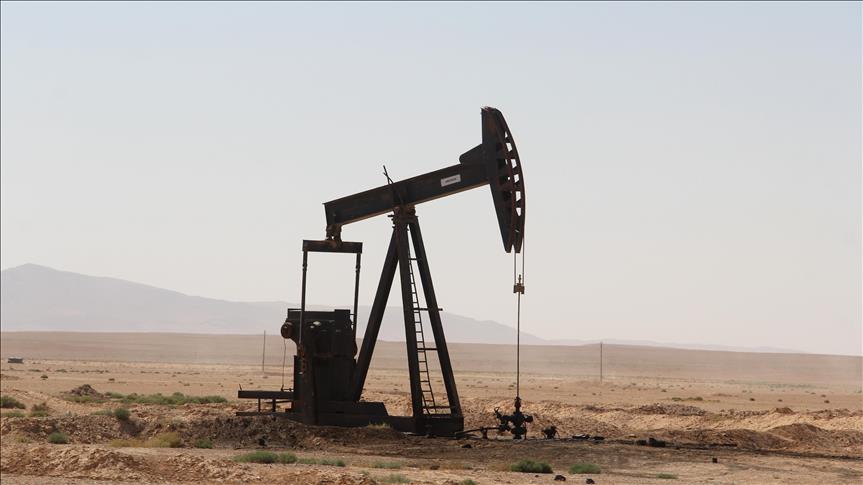The regime of Bashar al-Assad aims to compensate its international backers by offering oil and gas deals to its main supporter Russia and a lesser extent to Iran, according to Karam Shaar, the research director of Operations and Policy Center, a Gaziantep-based independent think tank and service provider.
Shaar told Anadolu Agency that the Assad regime wants to revive its energy sector, and to this end, has tasked Russian companies to explore energy sources in the Eastern Mediterranean.
Exploration and drilling licenses in the East Mediterranean in the Syrian exclusive economic zone were given to Russian companies, Soyuzneftegas, an international investment group of companies involved in oil and gas exploration and production, and the Capital Group, a company engaged in the geological study, exploration and production of hydrocarbons in the fields and license areas of subsoil.
The regime had granted Capital an exclusive right to explore and develop oil in the offshore Block Number 1 in Syria's economic zone in the Mediterranean off the coast of the Tartous governorate to the southern Syrian-Lebanese maritime borders in an area of 2,250 square kilometers, under an agreement issued on March 16.
However, the agreement also covers some 750 square kilometers of maritime areas claimed by Lebanon, which has resulted in a clear border dispute between the two countries.
Al-Assad has also reached out to Lebanon to resolve such maritime border disputes in the Eastern Mediterranean.
Furthermore, in December 2019, the Syrian regime granted hydrocarbon exploration licenses for onshore block 7 to Mercury, and block 23 to Velada, two other Russian companies, while Moscow aspires to work on two oil fields, al-Taim and al-Ward to the south of Deir-Ez-Zor in eastern Syria.
The country is also in discussions with Iraq to import Egyptian gas via Syria, according to an announcement by the Iraqi government on April 29.
Iran was offered a contract in onshore Block 12 near the Iraqi border, which had not produced oil before the 2011 uprising, according to Shaar.
He explained that although Russian companies were offered the lion’s share of investments, they has not started working on them yet.
According to Shaar, Russia’s ambition is to expand its oil and gas portfolio in as many areas as possible, as it views the situation in Syria as “very unstable” and for this reason is not willing to start the process of rehabilitating oil and gas fields and extracting more resources.
Al-Assad’s motivation to revive the energy sector is not only to keep his supporters happy but to increase the level of production in areas under the regime’s control, as the vast majority of oil fields are outside of the regime and Russian control, Shaar noted.
“By increasing production levels, al-Assad wants to give the economy a much-needed boost in preparation for the post-war era,” he said.
Between 2008 and 2010, the oil sector played a critical role in Syria’s economy. It then contributed 17-27% of the government's total revenue with a production level in regime-held areas of around 380,000 barrels per day, which has now fallen to just 20,000 barrels per day.
The lack of production has turned Syria from an exporter in the pre-war times to an importer now, incurring considerable costs for the regime.
However, according to Shaar, the oil sector in Syria has reached such a level in losing its energy resource dominance that any domestic production would only meet 20% of Syria’s demand, requiring imports predominantly from Iran and some from YPG-led Syrian Democratic Forces.
By Busranur Begcecanli
Anadolu Agency
energy@aa.com.tr


